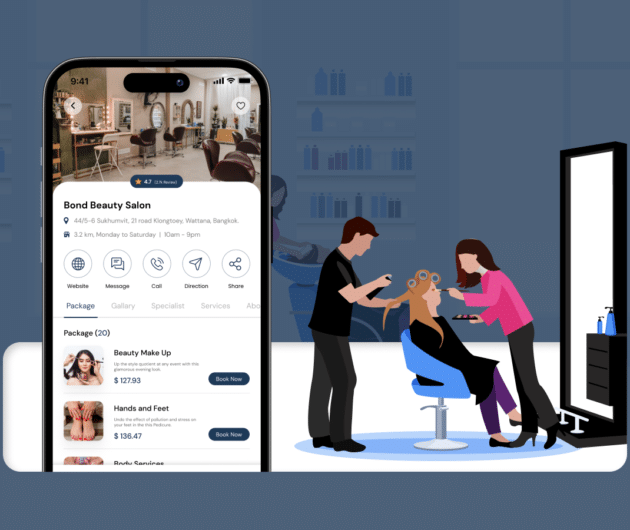What is Mobile DevOps And How It Works?
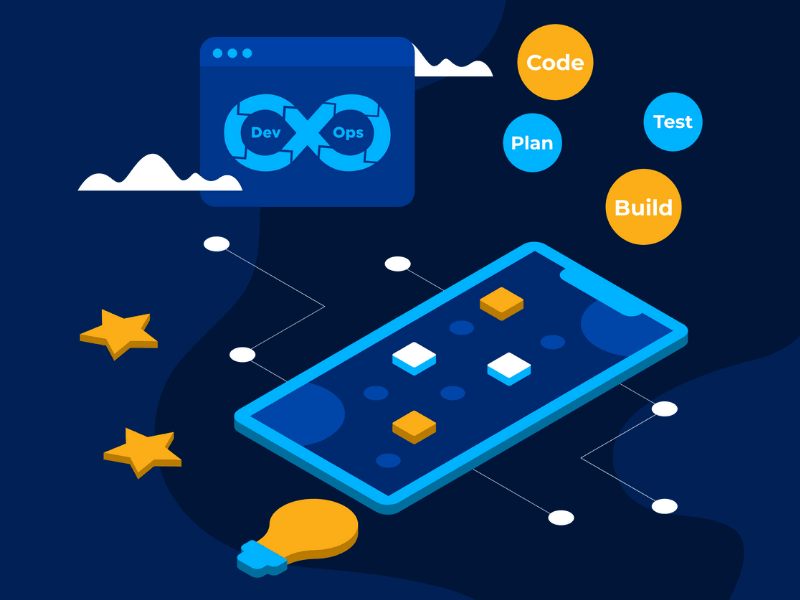
-
Ankit Patel
- February 23, 2021
- 5 min read
The Smartphone user’s number has unequivocally surpassed 3.5 billion and the figure is expected to rise constantly in the coming time. With a significant enhancement in the digits of Smartphone users and the mobile app downloads, it can be ascertained that the mobile app development industries are going to grow gradually and significantly.
Global technology is not the same as it was a few years back. The technology scenario of the current period is evolving incessantly. The mobile application developers are keeping a tab on the latest IT advancements to stay ahead of their competitors. The developers are adopting mobile DevOps so that the mobile app’s development process becomes more efficient.
Today, to survive in this highly competitive world, it becomes essential for mobile app developers to embrace the latest agile app development trends, best DevOps tools and technologies for developing mobile apps that appeal to users across all the platforms.
● What is Mobile DevOps?
Popped-up from Agile App Development in 2001, DevOps mainly represents an elementary exodus from the regular waterfall app development approach.
The ultimate aim of DevOps is to enhance healthy teamwork between all the team members associated with completing a digital product like the designers, project managers, developers, market analysts and other involved staff members.
While talking about the earlier app development practices, there was no link between different departments at the time of developing an app which ultimately resulted in increased app development cost, plenty of time for completing the project and sometimes dissatisfaction from the customer side. DevOps emerged as a bridge bridging the gap between operations and developments, thereby overcoming the challenges linked up with the delivery of a digital product.
The concept behind DevOps is fostering effective collaboration among the team members that previously used to work in siloes, facilitating tighter integration and releasing software faster. Aligning business goals and delivering high quality hybrid work on time to the customers is now possible just because of the mobile DevOps. This implies how important the mobile DevOps is for all of us.
● Why Is Mobile DevOps Process Important?
The Process of Mobile DevOps helps in:
- Creating alliances between all the mobile application development stakeholders (mobile development and operations team).
- Easy assigning of responsibilities among the development team.
- Speeding up the business goal accomplishment process.
- Enhancing the development and deployment of hybrid mobile applications.
Mobile DevOps development solutions enable the developers to bring together their entire development processes for uninterrupted workflow and figuring out problems.
For a business body, Mobile DevOps development solutions are essential because they add to:
- Quality of the software delivered.
- Higher employee engagement and retention.
- Excellent customer experience and support.
- Problem-solving.
- Creates a perfect environment for uncomplicated deployments.
- Creates plenty of time for ideal mobile app development, quality innovation as well as increased efficacy.
● The 6 Cs Behind The Mobile DevOps Process
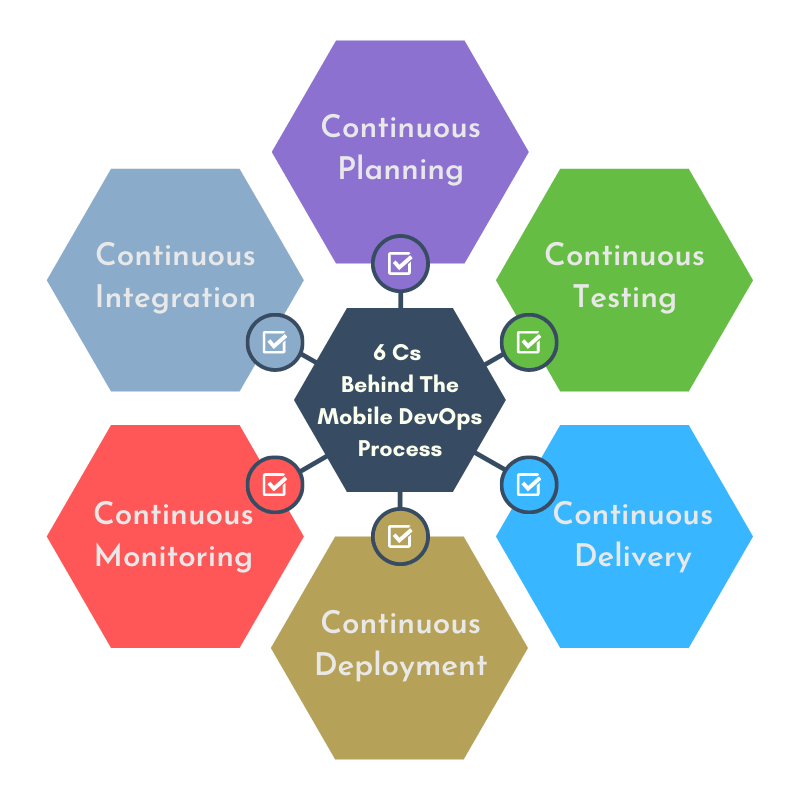
Mobile DevOps involves the implementation of 6 essential processes that aligns the entire process together so that quality solutions can be delivered.
- Continuous Planning
- Continuous Integration
- Continuous Testing
- Continuous Monitoring
- Continuous Delivery
- Continuous Deployment
Under this segment of the DevOps process, the aim is there to link together the entire digital project team right from project managers, market analysts and developers to operations staff and every single stakeholder. This is done to identify the application scope, define the resources and the outcomes and ensure a logical release plan.
Continuous Integration in mobile DevOps is a process ensuring that the code coded by one team of developers works flawlessly with the code written and submitted by the other team of developers. It ensures that error-free practices are employed and helps in planning standards for creating version control.
Testing is a crucial part of any software development process that can never be ignored nor can be done carelessly. Continuous testing helps in spotting the problems and identifying bugs at an early development stage that result in the delivery of quality products to the end-user. The main aim of it is to keep on testing frequently.
It is because of mobile DevOps it is possible for the developers to execute monitoring processes prior to the deployment of the final product to the customers. Continuous Monitoring facilitates spotting and resolving any prevalent issues.
This process ensures that the app is perfectly functioning as expected. During this monitoring stage, there is a certain guarantee that the app development environment will remain unaffected despite any out-of-the-blue challenges that might arise during the app production process.
Continuous delivery is one of the 6 Cs that ensures that the concerned team receives immediately the information on any modification done or the changed codes so that the final product can be released on time without any flaws. Continuous delivery focuses on building, testing and releasing the software to the customer quickly.
The last of the 6 Cs is continuous deployment. This process involves automatic deployment of tested and changed code to the concerned production environment.
To handle the prevailing online competition strongly, you should seek mobile DevOps development solutions as these solutions can elevate your profit graphs relentlessly. Smooth app development operation is possible as it helps every single associated team member in executing their tasks systematically without consuming plenty of time.
● Steps To Be Followed For Implementing Mobile DevOps
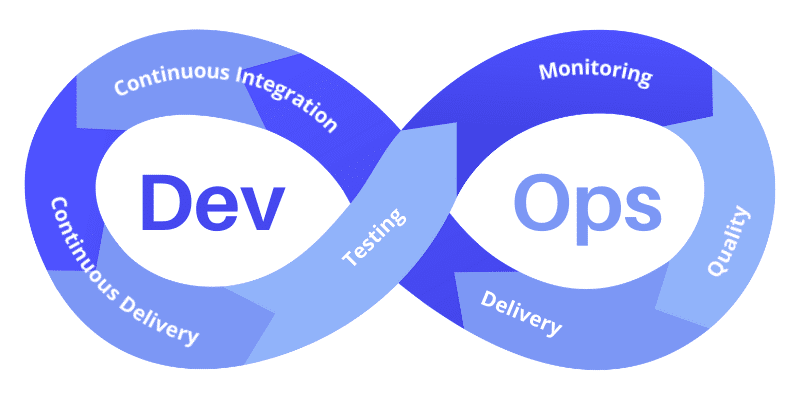
All set to adopt mobile DevOps development solutions? Then do go through and without fail follow the below stated fundamental steps:
- Continuous Integration
- Try using traceable scripts, text files, documents and codes. Also, ensure that each code is synchronizing with each other properly.
- Continuous Delivery
- Your every variant is built exceptionally keeping in mind the platforms you are going to target.
- Manage your app scripts keeping in mind the right versions. Ensure that the scripts built can be reproduced if needed.
- Testing
- Make sure that you make use of effective and latest tools and also the right ones for testing your app thoroughly.
- Monitoring
- Assist your entire development team as per your virtual illustrations. This will help you in rapidly testing and cutting down on app development costs. Additionally, reduces the expenses of hardware resources.
- Keep monitoring your app to avoid end-user dissatisfaction. You can achieve this by the incorporation of a 3rd party SDK.
- Quality
- To know the quality of your app, you should keep a close watch on the reviews and ratings received by your app.
- Delivery
- By knowing the reviews and ratings received by your app, you can address the problems and make necessary improvements in your app to make it even better.
● Challenges Faced In Adopting Mobile DevOps Process
Though mobile DevOps offers amazing benefits, the implementing process can prove to be a bit challenging. Hence, it would be advisable that you identify all possible bottlenecks and challenges you may come across. A few common challenges are:
- Multi-Platform Compatibility
- Play Store (Google) & App Store (Apple)
- Push Deployment Model
- Testing Mobile App
Whether it is about compatibility with different platforms, devices or about hardware specifications, with mobile DevOps, you can create multi-platform compatible apps.
Have you ever heard of deploying an app directly to a Smartphone? No, this is not possible. The app needs to be first submitted to the Play Store (Android devices) and App Store (iOS devices) and then have to go through a review process. Only after that, it can be downloaded to a Smartphone.
This model creates a challenge for your app as it is purely the decision of the user to update or not to update the app.
You will never want your app to be rated with 1-star. If your app fails in satisfying its users, they may give negative reviews and 1-star to your app that could hamper your brand’s goodwill. Hence, make use of performance, usability and functional testing techniques to test your app thoroughly.
● Plus Points of Implementing Mobile DevOps
Before DevOps development solutions, complete code was first written by the developers and then sent to the operations team. DevOps distributes the responsibilities equally among all the team members so that the application can be built on time without any errors. DevOps offers the following benefits:
- Faster time to delivery
- Improved recovery
- Increased effectiveness
- Higher engagement of team members
- High collaboration amidst the team members
- Better customer experience
- Better communication
- Innovative mindset
- Early detection of bugs
- Continuous release & deployment
- Stable work environment
Wrapping Up
Mobile DevOps development solutions are undoubtedly going to make easy the app development process for mobile app development companies. With mobile DevOps, seamless interaction amidst different team members is possible that unlocks business and operational success.
You may also like
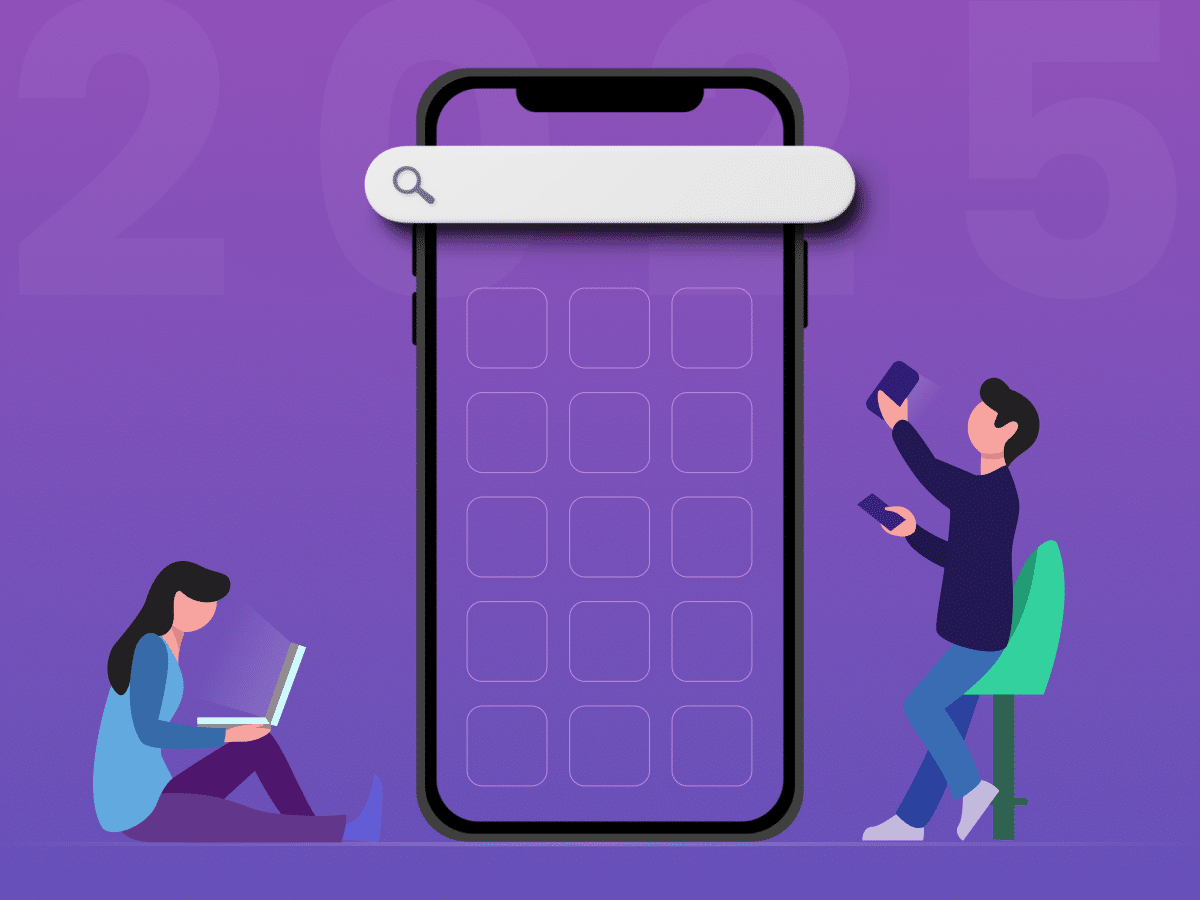
How to Choose the Right Mobile App Development Company
-
Ankit Patel
Imagine this: you’ve got a brilliant app idea that could revolutionize your business, take it to new heights, and transform your entire customer experience. But without the right team to… Read More
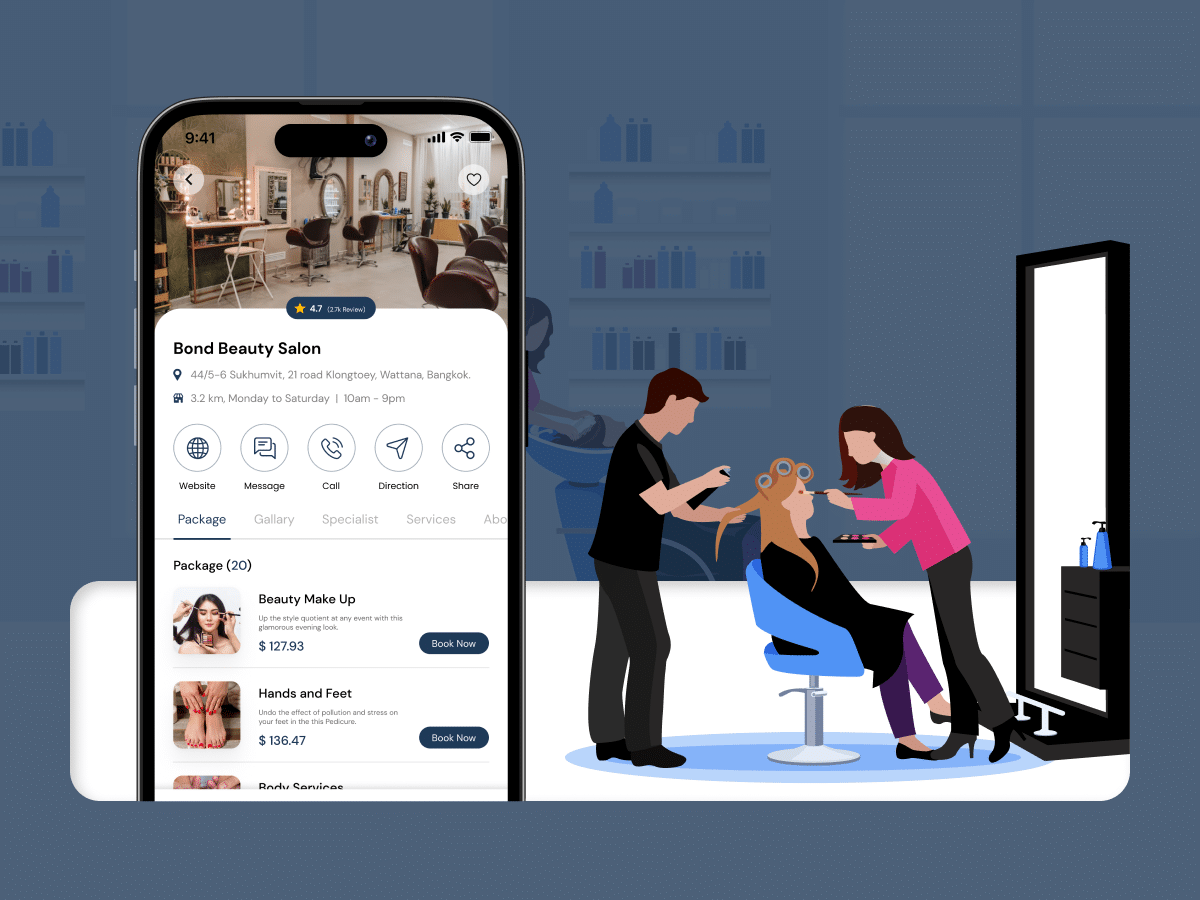
How Much Does it Cost to Build a Salon Booking App like Fresha?
-
Ankit Patel
We all have witnessed the buzz in the world of beauty & wellness, and it’s booming every day thanks to the fast-paced and stressful lifestyle. In an era where time… Read More

A Complete Guide to Hotel Booking App Development With Cost
-
Ankit Patel
Whether it’s a corporate business trip or a relaxing vacation with friends, finding the right hotel at the right time and a seamless hotel booking experience is not a luxury… Read More


